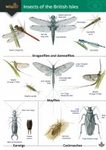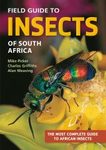![Insect Learning Insect Learning]()
Click to have a closer look
About this book
Contents
Customer reviews
Related titles
About this book
Insect Learning is a comprehensive review of a new field. Until recently, insects were viewed as rigidly programmed automatons; now, however, it is recognized that they can actually learn and that their behavior is plastic. This fundamental change in viewpoint is having a snowball effect, causing a re-examination of all aspects of the relationship between insects and their environment. This change in perspective is occurring at the time of heightened interest in brain function in both vertebrates and invertebrates. Insects potentially play a major role in this expanding area. Because of their experimental tractability and genetic diversity, they provide unique opportunities for testing hypotheses on the ecology and evolution of learning. As organisms of economic importance, they are perennial objects of research by both basic and applied scientists. "Insect Learning" covers both social and non-social insects from multiple perspectives. The book covers mechanisms; syntheses of work on physiology, behaviour, and ecology; the micro- and macroevolution. The concluding section discusses future directions for research, including applications to pest management. This book should be of interest to professionals in the fields of behaviour, entomology, evolution, ecology, neurophysiology, genetics, cognitive and experimental psychology and pest control; and botanists interested in plant-insect relationships.
Contents
Part I: Mechanisms of learning. Learning at the organismal level - R Menzel; Behavior genetics - T Tully. Biochemistry - W G Quinn; Neurobiology - T Tobin. Part II: Physiological ecology of learning; Dietary mixing - E A Bernays; Sensory ecology of learning in parasitoids - W J Lewis. Part III: Behavioral ecology of learning. Learning and foraging theory - D Stephens; Learning and sociality - J Gould. Part IV: Evolution of learning. Quantitative genetics - C Brandes; Genetic constraints on the evolution of learning - S Via; Coevolution and learning - A C Lewis; Evolution of learning and instinct - D R Papaj; Learning and formation of host races - M Rausher and J Jaenike; Learning and evolution of complex traits - J Maynard Smith; Macroevolution of learning: comparative approaches - J Rosenheim. Part V: Future directions. Applications of learning to pest management - L Vet and R Prokopy; Bridging psychology and entomology - V Dethier.
Customer Reviews
Edited By: DR Rapaj and AC Lewis
398 pages, Figs, tabs
'Insect Learning is a collection of papers providing an extensive and indepth look at the functional ecology of insect learning. On the whole this book is a good balance of theory, models and empirical results which underline the significance of various types, and aspects of learning in insect decision-making. ... an original product that will undoubtedly stimulate fruitful discussion and create further avenues of research... I recommend Insect Learning. It is a most stimulating book and a key reference. In my estimation it has no rival.' Bulletin of Entomological Research 'This book reviews a broad range of ecological and evolutionary problems in insect learning, usually in the context of new data and original models.' Review of Medical and Veterinary Entomology 'We can expect to see much progress in this field over the coming decade, and this book points the way.' Ecology 'The excellent chapter by Rosenheim should be required reading for all who work in the area of insect learning... this book is a welcome addition to the literature on insect behaviour ...a well-organized and generally well-written book that should be read by anyone interested in insect behavior.' Annals of the Entomological Society of America



































